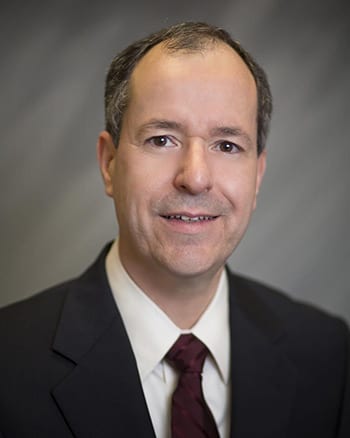By Andrew Cohen

Michael Colantuono ’88 fully grasps the magnitude of the challenges he will face as the State Bar of California’s new president. Nevertheless, he embraces them and looks forward to shifting the recent narrative about the nation’s largest bar association.
Colantuono went through a dramatic election against Los Angeles County Deputy District Attorney Danette Meyers that featured three tense rounds of balloting—all ending in a 7-7 deadlock. Bar President James Fox cast the tiebreaking vote.
“I was elected treasurer in 2014 with the anticipation that I’d climb the ladder and become president in 2016,” Colantuono recalled. “Alas, in 2015 I was defeated in an 8-8 tie with a tiebreaker cast by the president. So, I’d been down this road before.”
The vote symbolized the Bar’s recent turmoil. Last year, a pointed audit took issue with the agency’s lack of financial transparency, certain spending, and a backlog of pending claims by the victims of attorney theft or dishonesty that led to long reimbursement delays.
“I’ve had the pleasure of serving with Michael on the State Bar Board for nearly a year and believe the Bar is in very capable hands under his leadership,” said Sean SeLegue ’91. “In addition to sound judgment, he brings both a mastery of government law and political acumen that is invaluable to an organization working to regain its footing after a tumultuous period.”
Streamlining toward more efficiency
Funded mostly by annual dues, the California Bar oversees the licensing of more than 250,000 attorneys, imposes a continuing education requirement on them, and handles discipline for lawyer misconduct. Last year’s audit, which noted the impact of political infighting on the Bar, along with its substantive findings, prompted action by the California State Legislature.
That body is reviewing a bill that would separate 16 specialty associations from the Bar, leaving the organization to concentrate its efforts on attorney discipline, the state bar exam, diversity in the profession, and access to justice. The bill would also reduce the board to 13 members appointed by state leaders rather than elected by lawyers from districts around the state; and give the state Supreme Court rather than the board of trustees power to name the Bar’s president and vice president.
“There’s no question that we can do a better job smoothing out relationships with the legislature, while giving the media something to talk about other than palace intrigue,” Colantuono said. “Our mission is all about protecting the public, and we have to make meaningful progress in every area that entails.”
A municipal law attorney and a name partner at Colantuono, Highsmith & Whatley, Colantuono serves as city attorney for Auburn and Grass Valley. Appointed to the Bar’s board of trustees in 2012 and the organization’s first openly gay president, he will be sworn into office next month.
Colantuono aims to help streamline the Bar’s operation and heal rifts with the legislature—which last year refused to authorize an annual dues bill amid disagreements over reforms to the agency. The Supreme Court authorized a lesser amount of dues. Another hot topic: maintaining a fingerprint database of state lawyers “so the justice system could notify us each time a lawyer got arrested,” he said. “That would promote the cause of reform and promote a better relationship with the Legislature and the general public.”
Becoming a national model
Colantuono realizes the scope of his task leading the nation’s largest bar in number of lawyers, employees, and budget—and the longstanding history of its complex governance.
“Because of California’s size and visibility, the things we do here quickly become national models,” he said. “We require 6 unit hours of clinical training of every law graduate, and we have a new requirement of 10 hours of continuing legal education in skill building for new admittees. We’re also recalibrating our bar exam to ensure that we’re measuring well, and measuring the right things.”
Nancy Fineman ’86, a recent president of the Boalt Hall Alumni Association, served with Colantuono on the bar’s board of trustees. She called him “a great choice to lead the bar” and said he was “thoughtful, hard-working, and willing to listen to all views. His knowledge of public law is amazing.”
The youngest of 11 children, Colantuono graduated from Harvard before enrolling at Berkeley Law. Now an appellate specialist who has argued in all six of California’s appellate districts and several times in the state Supreme Court, he never envisioned his path.
“I went to law school to be a professor and never intended to practice law,” he said. “I didn’t think anything lawyers did was worthwhile or socially redeeming. Going to Berkeley quickly changed that view. My first job as a city attorney in an impoverished Latino community of Los Angeles County showed me how good lawyers can make the world a better place.”